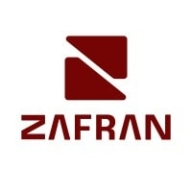


Tenable Nessus and Microsoft Defender Vulnerability Management compete in vulnerability assessment and management. Microsoft Defender Vulnerability Management has an edge due to its feature richness and cost-effectiveness.
Features: Tenable Nessus offers extensive scanning, detailed reporting, and supports a wide range of devices. Microsoft Defender Vulnerability Management integrates well with the Microsoft ecosystem, enhances endpoint protection, and supports seamless workflows for Microsoft users.
Room for Improvement: Tenable Nessus could improve its integration capabilities with non-Tenable ecosystems, enrich its user interface experience, and expand its automation tools. Microsoft Defender Vulnerability Management might benefit from decreasing integration setup time for non-Microsoft users, enhancing support for diverse operating systems, and refining its pricing model for cost-effectiveness.
Ease of Deployment and Customer Service: Tenable Nessus is straightforward to set up with available customer support, offering quick, independent deployment. Microsoft Defender Vulnerability Management integrates smoothly within existing Microsoft environments, easing deployment for current Microsoft customers, but may require more setup for others.
Pricing and ROI: Tenable Nessus provides competitive pricing and immediate affordability with effective vulnerability detection and reporting. Microsoft Defender Vulnerability Management has higher initial costs but offers long-term ROI through added security features and integration benefits for businesses invested in Microsoft technologies.



Zafran Security integrates with existing security tools to identify and mitigate vulnerabilities effectively, proving that most critical vulnerabilities are not exploitable, optimizing threat management.
Zafran Security introduces an innovative operating model for managing security threats and vulnerabilities. By leveraging the threat exposure management platform, it pinpoints and prioritizes exploitable vulnerabilities, reducing risk through immediate remediation. This platform enhances your hybrid cloud security by normalizing vulnerability signals and integrating specific IT context data, such as CVE runtime presence and internet asset reachability, into its analysis. No longer reliant on patch windows, Zafran Security allows you to manage risks actively.
What are the key features of Zafran Security?
What benefits can users expect from Zafran Security?
In industries where security is paramount, such as finance and healthcare, Zafran Security provides invaluable protection by ensuring that only exploitable vulnerabilities are addressed. It allows entities to maintain robust security measures while allocating resources efficiently, fitting seamlessly into existing security strategies.
Microsoft Defender Vulnerability Management enables organizations to identify vulnerabilities, manage patches, and fortify threat detection. It offers endpoint assessments, cloud incident management, and dynamic security through Microsoft's Security Scorecard integration.
Organizations leverage Microsoft Defender Vulnerability Management for advanced threat detection and response. It provides robust tools for vulnerability assessment and cloud incident management, integrated with Microsoft's Security Scorecard to enhance dynamic security profiling. Key features include automatic patch deployment, security configuration management, and seamless integration with Microsoft platforms, benefiting both on-prem and cloud environments. Organizations can track vulnerabilities with severity-based reports, helping manage outdated software and minimizing threat exposure.
What are the key features of Microsoft Defender Vulnerability Management?In healthcare, Microsoft Defender Vulnerability Management helps manage compliance with health regulations, while in finance, it aids in securing sensitive data from cyber threats. Manufacturing sectors benefit from its patch management, keeping operational technology systems less vulnerable to disruptions.
Tenable Nessus provides an efficient vulnerability management system with swift deployment and comprehensive scanning capabilities, making it an ideal choice for organizations seeking to enhance their security posture through effective threat detection and mitigation strategies.
Renowned for its top-tier vulnerability detection, Tenable Nessus offers a robust platform that integrates effortlessly across systems, enhancing threat management through automation, real-time monitoring, and customizable scanning options. Its broad asset coverage, including network devices and applications, coupled with ease of deployment, positions it as a go-to option for risk assessment and compliance. Organizations value its extensive reporting features and database, although they suggest enhancements in reporting formats and false positive detection. A more intuitive interface, improved cloud support, and competitive pricing models are sought after to cater to evolving enterprise needs.
What are the key features of Tenable Nessus?In industries such as finance, healthcare, and tech, Tenable Nessus is implemented for scanning internal and external networks, identifying risks, and ensuring data protection compliance. Organizations conduct regular scans to detect security vulnerabilities in servers and databases, leveraging its capabilities to strengthen their security frameworks while managing cloud infrastructures and enterprise networks efficiently.
We monitor all Vulnerability Management reviews to prevent fraudulent reviews and keep review quality high. We do not post reviews by company employees or direct competitors. We validate each review for authenticity via cross-reference with LinkedIn, and personal follow-up with the reviewer when necessary.